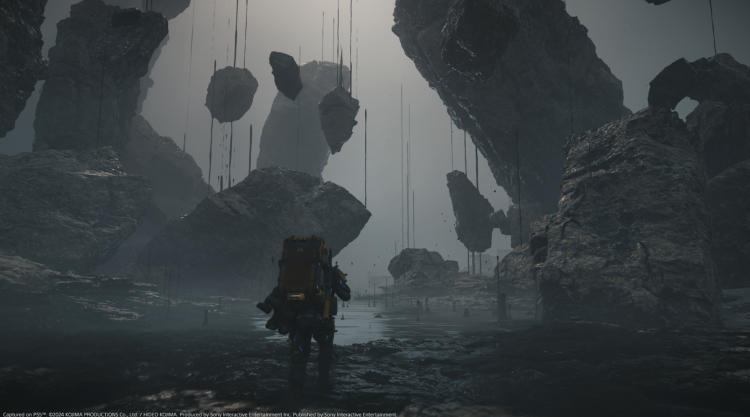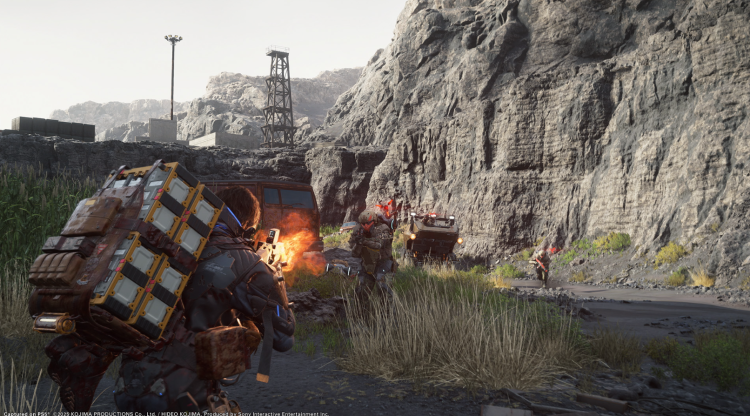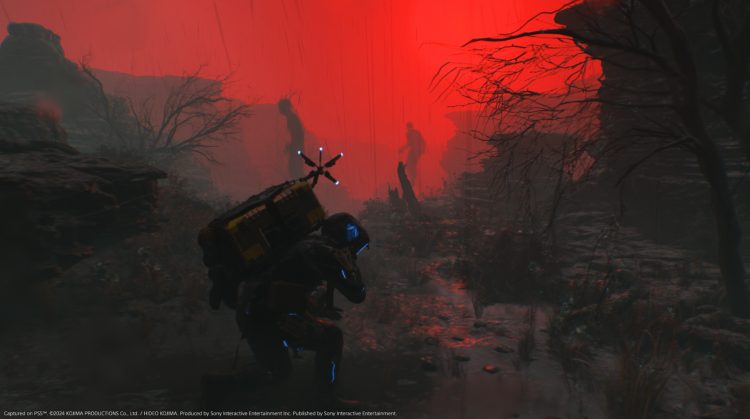A PC Player’s Death Stranding 2 Review, From the Sidelines
I played Death Stranding DIRECTOR’S CUT on PC almost two years after its original console launch. And I adored it. Everything from the way BTs loomed over the chiral-drenched world, to the mechanical dance of balance and cargo, to the quiet moments watching the wind ripple through ghost towns—it hit hard. It felt like a game made for solitude and purpose. So when I realized that Death Stranding 2: On The Beach was launching exclusively on PS5, I knew I wouldn’t get to play it anytime soon, but I could still understand it.
Over the last week, I’ve gone down the rabbit hole of every major review, commentary thread, tech breakdown, and early access impressions to piece together what this sequel is really about. This isn’t just a reaction to numbers—it’s my attempt to track how Kojima Productions has evolved from a divisive debut into something even more daring. If Death Stranding 1 was about reconnecting, this one seems to be about reconciling—with the past, with violence, and with what it means to try again.
What Has Changed—and What Hasn’t
The consensus across reviews is clear: this is a more polished, more ambitious, and often more emotional version of the original. The core remains. Traversal is still deliberate. Deliveries still demand patience. But movement is more fluid, combat options are more fleshed out, and the stakes feel more narratively intense.
Many reviewers called out the near-instant loading on PS5 —so seamless it feels like science fiction. Visually, it’s not just more detailed but more alive. Weather changes aren’t just cosmetic; they affect routes and danger levels. Vehicles feel more essential. And the environments—from Australia to Mexico—aren’t just big, they’re layered and vertical in new ways. You’re not just connecting the world. You’re crawling through its memory.
Still, not everyone was sold on the new direction. Some felt it leaned too heavily on spectacle, softening the loneliness and desperation that gave the original its bite. Where DS1 often made me feel completely alone, critics suggest this sequel surrounds Sam with more dialogue, more noise, and more systems. It's not a bad thing—just different.

What I Noticed in Reviews (and Missed from the First Game)
The writing still seems deeply Kojima. Messy, spiritual, overexplained, and yet somehow incredibly human. From what I read, the themes are heavier this time: automation, climate anxiety, the fear of AI, and the push-pull between connection and control. That all checks out. Those were already seeds in the first game. Now, they bloom.
But one thing I saw repeatedly—especially in longer reviews—was the idea that the game sometimes spreads itself too thin. Some missions loop in familiar patterns. Some characters overstay their welcome. One critic called it a knot of ideas. Another said it’s like Kojima wanted to make five games in one. That tracks, too. Even in DS1, you could see him balancing multiple metaphors like plates on sticks.
Still, people felt things. That’s what stuck out most. The previews and reviews speak to deep emotion, not just in cutscenes but in small choices. Who do you help? What you leave behind. It’s the same design philosophy that made me leave ladders for strangers in the original. And that makes me think I’ll love DS2 too, when it finally lands on PC.
One standout review described Death Stranding 2 as a game about grief and legacy—still weird, still philosophical, but more precise in how it handles human emotion. That reviewer didn’t shy away from pointing out pacing issues, but the focus stayed on its storytelling strength. It’s described as theatrical, metaphor-laden, and occasionally indulgent—but worth it. I believe that. Kojima’s games are rarely clean. But they are cohesive, in a messy kind of way.

Metacritic
The game’s Metascore hovers in the low 90s, and most major publications gave it glowing marks.
IGN Brasil (100):
They called it more dynamic and intense than the first, with strong Metal Gear DNA in combat and a plot that critiques social media, corporations, and artificial intelligence, while staying grounded in themes of love, family, and depression.
Radio Times (100):
They called it “a treatise on the nature of humanity” and “an experience I will never forget.” That’s the kind of praise Kojima lives for.
VGC (100):
Described it as one of Kojima’s best ever. Bigger gameplay variety, better characters, and a stronger world.
PC Games (80):
Praised the visuals and smart additions but cautioned that fans of the first game will enjoy it most. Anyone unconvinced by DS1 won’t find an easy on-ramp here.
GameSpot (70):
Said the sequel lacks the narrative clarity of the first, juggling too many ideas. But acknowledged its ambition and relevance in themes like climate change, gun violence, and institutional breakdown.
IGN France (60):
Felt that Kojima lost the edge that made DS1 unforgettable, opting for accessibility over intensity. They called it beautiful but too easy. Ironically, this is the same outlet that gave the first Death Stranding a 6.
(Just like how IGN Japan gave Clair Obscur a 7, some outlets just drift a little colder than others.)

From everything I’ve seen, Death Stranding 2: On The Beach is still that rare kind of game that tries to make you feel something profound while doing something simple. Walk. Deliver. Listen. Help. It’s not a revolution, but it is a continuation—a doubling down on what made DS1 unique. For me, the first game was about isolation and effort. This one, from what I’ve read, is about consequences and memory.
I can’t play it yet. But I want to. And until that PC port arrives (and it will—eventually), I’ll be rewatching trailers and reading impressions, remembering that games like this don’t come often.
And when they do, even just reading about them can feel like walking through someone else’s footprints.

Comments